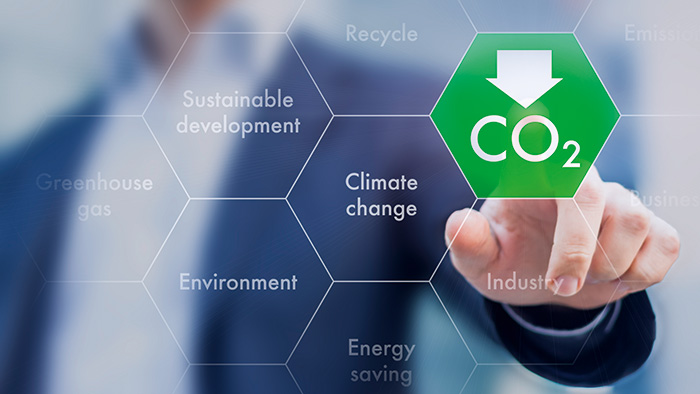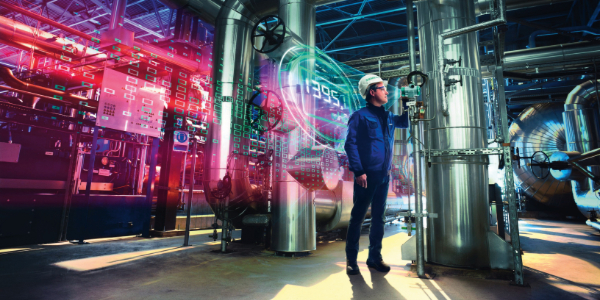Degrading Quality of Crude Oil: An Opportunity for Fuel Additives

“The petroleum sector is one of the world's largest and plays a critical role in a country's economic growth. However, the exploration and extraction of heavy crude oil have resulted in a slew of environmental issues, as well as heightened anxiety in the communities near oil refineries. Acid rain, climate change, and pollution of soil, water, and air have all been caused by activities such as gas flaring and oil spills, which have resulted in the release of harmful organic and inorganic pollutants, resulting in acid rain, climate change, and contamination of soil, water, and air. These environmental risks have had negative consequences on the ecology, either directly or indirectly.”
For generations, heavy oil has been a part of the natural ecosystem. It is a substance thought to have evolved over millions of years as a result of the death and decay of plant and animal remains embedded in shallow sea sediments and later overlaid by a sequence of strata of sedimentary rocks. These organic leftovers are transformed into petroleum by extreme heat and pressure, traveling upwards, sometimes across large distances, either to reach the surface or to be confined in what will eventually become oil reserves.
Heavy oil is unrefined petroleum that forms spontaneously and is primarily made up of hydrocarbon deposits and other organic components. By refining heavy oil, it can be transformed into more valuable products such as gasoline, kerosene, jet fuel, diesel, heating oil, and other petrochemicals.
Crude oil, in general, passes through several stages of exploration before reaching end-users or retailers.
Exploration and production of crude oil
Oil exploration and exploitation is a major source of money for petroleum-producing countries, and in certain cases, it is the engine that drives their economies. However, as with most human activities, it produces environmental risks that are referred to as "slow poisons" because they take a long time to cause disease and, in the worst-case scenario, death.
The risks caused by oil exploration and extraction are often unnoticed and sluggish to act, making it difficult to fully assess their contribution to the disease burden in a country like Nigeria, particularly in oil-bearing communities.
Heavy crude oil processing poses a number of challenges
Flaring of gas
One of the most difficult energies and environmental issues facing the world today is gas flaring. In truth, while this behavior has been denounced in many countries around the world, the practice has not been completely eradicated in some, particularly in emerging economies.
Petroleum-producing countries with limited funds and investment in structural infrastructure for the efficient usage of related gases resulting from crude oil refining operations have allowed flaring.
Changes in the climate
The Flaring of natural gas contributes to climate change, which has major worldwide environmental consequences. Carbon dioxide, methane, and other gases are released when fossil fuels are used, resulting in global warming and increasingly acute environmental issues for developing countries, particularly Africa, which is very sensitive and has limited ability to adapt.
Flaring emits two major greenhouse gases: carbon dioxide and methane, with methane being more toxic and damaging than carbon dioxide.
Acid Rain
Flaring also leads to local and regional environmental issues such as acid rain, which has ramifications for agriculture, forestry, and other physical infrastructure. Acid rain destroys vegetation by acidifying lakes and streams.
Acid rain also hastens the deterioration of construction materials and coatings. Furthermore, these toxins acidify the soil, depleting soil nutrients, reducing soil fertility, and lowering the nutritional value of crops grown near flares.
Environmental resources
Disturbance of animals due to noise and human activity, exposure of biota to toxins, and death of biota due to inadvertent collisions with ground infrastructure or vehicles might all have severe consequences on ecological resources during the extraction of heavy crude oil.
Production wells, ancillary facilities, and an access road can all degrade habitat quality, disrupt biota, and hence have an impact on ecological resources.
Impact Of Degradation Of Crude Oil
The reduction in crude oil prices over the last seven months has caused concern among petrochemical players, with many planned projects being postponed and financial institutions concerned about the degree and future impact on financial returns. There is an intrinsic relationship between crude oil as basic raw material and downstream petrochemical derivatives in the petrochemical sector.
- The reliance on crude oil for power generation has decreased, reducing the influence on renewable energy's economic competitiveness while raising the need to compare renewables to alternatives such as natural gas, coal, and nuclear power.
- The recent reduction in the price of crude oil has underlined the appeal of renewable energy's relative independence from fuel price changes. When opposed to petrochemical-based projects, where anticipated project ROI is contingent on the accuracy of raw material estimates, the certainty in up-front capital expenditures and “zero” raw material expenses are attractive and intrinsically lower-risk.
- The elimination of fossil fuel subsidies, together with the continued decline in renewable technology capital costs, will improve the margins captured by top renewables businesses. It's feasible that a tipping point will be achieved when the cost of solar or wind energy will set the price of fossil fuel-based power.
Renewable energy has a new perspective
Renewable energy has traditionally been fueled by sustainability goals and coordinated regional attempts to diversify current energy portfolios. Solar PV has become more affordable and sustainable for many consumers because of government subsidies, resulting in phenomenal growth over the last decade.
Because of the lower capital investment, solar power is now considered a feasible energy option for coal, natural gas, and/or nuclear power generation. Middle Eastern countries have included solar as part of a broader energy portfolio, indicating that it may be a viable alternative in their “post-oil” future. Renewable energy continues to be considered as an energy alternative within a larger portfolio where coal and natural gas play key roles in most nations (with the exception of some in Western Europe and South America).
Because of the decline in crude oil prices, several countries are rethinking how they allocate their current subsidies (both to renewables and to fossil fuels), allowing renewable energy to shift from an energy alternative to an energy staple.
The upfront capital costs are much easier to estimate and, more crucially, are dropping with technological breakthroughs in the financing of renewable energy projects using LCOE analysis. Because renewable energy is a technology-dependent sector (and at this level of the experience curve), costs will continue to fall as manufacturing methods, installation procedures, and know-how is refined and improved. Fossil fuels, on the other hand, are an extraction-dependent industry with rising costs as resources grow more difficult to come by.
What does technological development and policy mean?
The economic competitiveness of energy from renewable sources such as wind and solar is influenced by both national policies and technology costs. Because of the falling capital costs of renewable energy projects (for example, the considerable decline in module prices for solar PV), certain projects can now operate at grid parity without any renewable energy subsidies.
- Further reductions in fossil fuel subsidies may push renewable energy technologies to a strong competitive position versus their fossil-fuel-based counterparts in power generation.
- While module costs for solar PV continue to plummet, additional technical improvements in installation, energy storage, and services may have an even greater influence on solar technology's economic sustainability.
- Wind and solar power will benefit the most from advances in energy capture and storage technology, which will help them overcome difficulties like intermittency and distribution.
Major Market Highlights:
- In Shanghai, China, Evonik Industries AG constructed a new oil additives performance testing lab. This new performance testing lab will service clients in China and the Asia Pacific area, demonstrating Evonik's commitment to assisting customers with formulation development, lab testing, and real-world performance demonstration.
- LANXESS AG has agreed to buy Emerald Kalama Chemical, a company based in the United States. It is a market leader in specialty additives.
- The Lubrizol Corporation has announced the release of a new additive as part of the Lubrizol PV 1500 series, which is designed to increase operational efficiency. By September 1, 2021, Dexos will be available for first licensing.
- Innospec Inc. introduced Trident, a novel bunker fuel additive package that improves fuel stability and combustion efficiency, in April 2021. Trident 100, 120, 200, and 290 are several types of stability additives available under the Trident brand.
Conclusion: Alternative sources to the rescue!
The refining of heavy crude oil produces a variety of harmful organic and inorganic contaminants that have direct and indirect environmental consequences. Some of the key processes contributing to the discharge of harmful chemicals into the environment are gas flaring, oil spillage, and pipeline vandalism. Oil spills have been caused by a variety of factors, including equipment failure and sabotage/theft. These events have wreaked havoc on coastal vegetation, poisoned ground, and surface water, and sparked ethnic and regional tensions.
Noise pollution from producing wells, interference with ecological resources, discharge of hazardous compounds, deterioration in air quality, and health and safety implications are some of the other environmental problems associated with heavy crude oil processing. As a result, it is critical for the petroleum industry to implement practices that provide a fair level of environmental protection. If adopted, these procedural strategies should be able to minimize or eliminate harmful contaminants.











